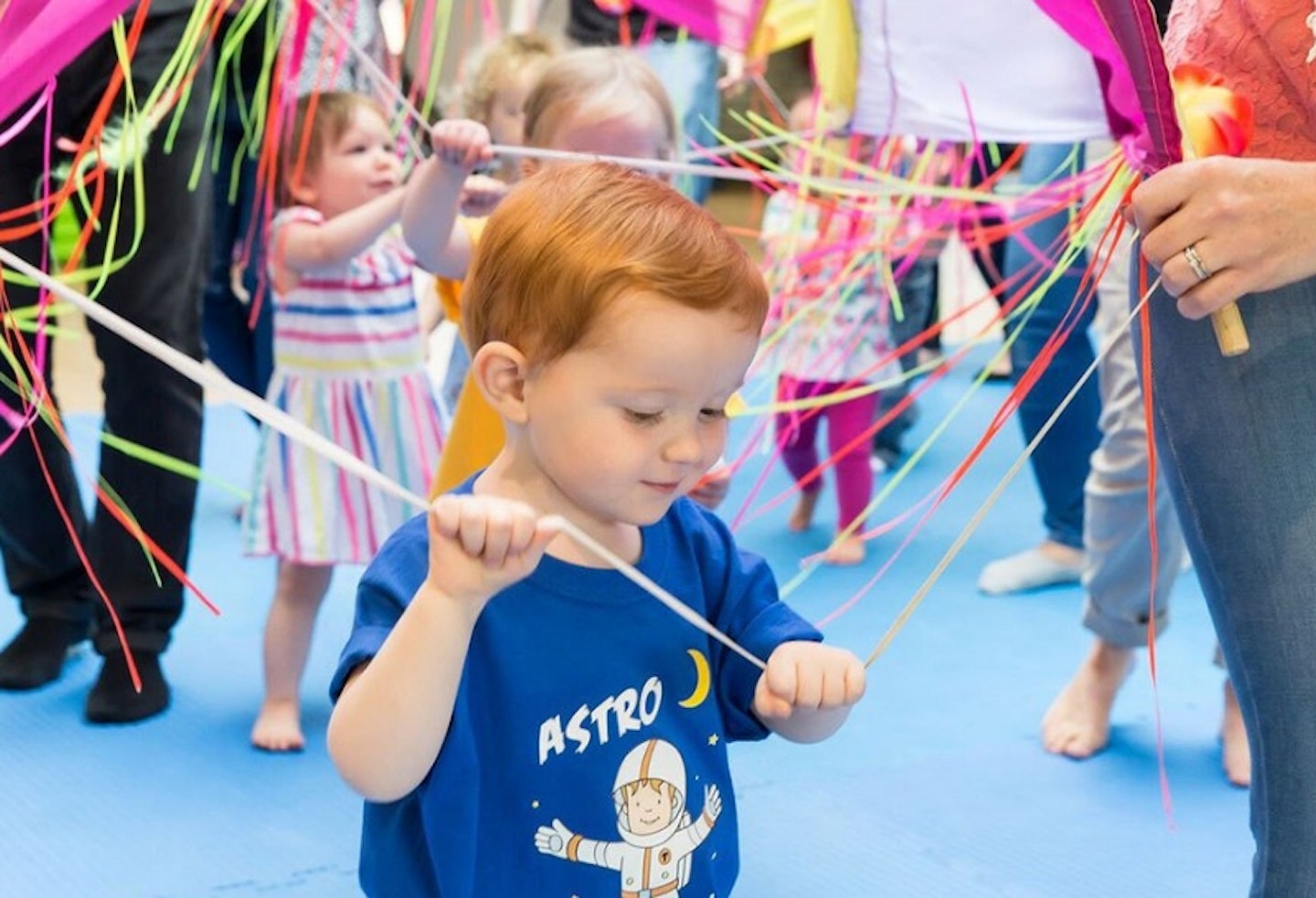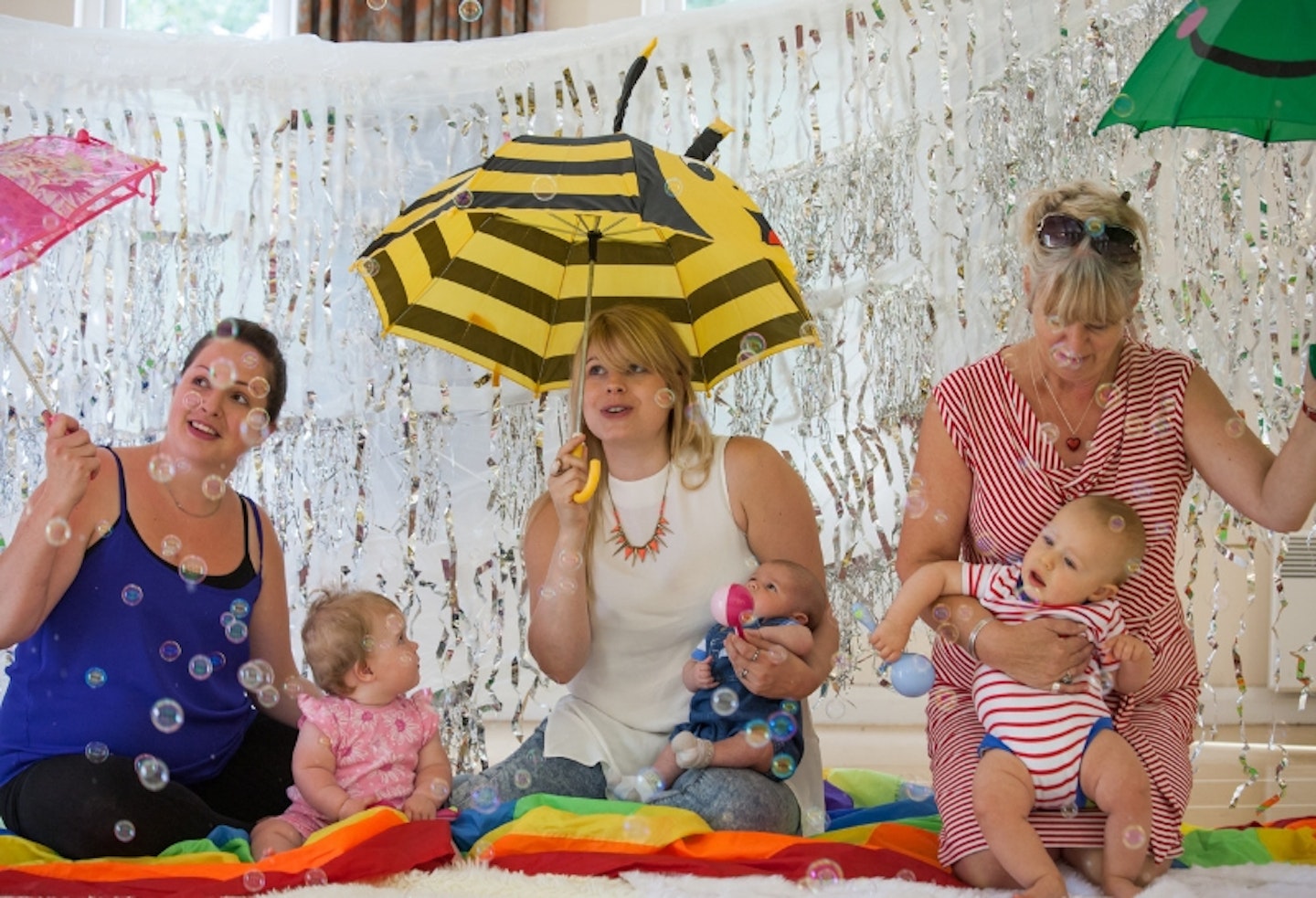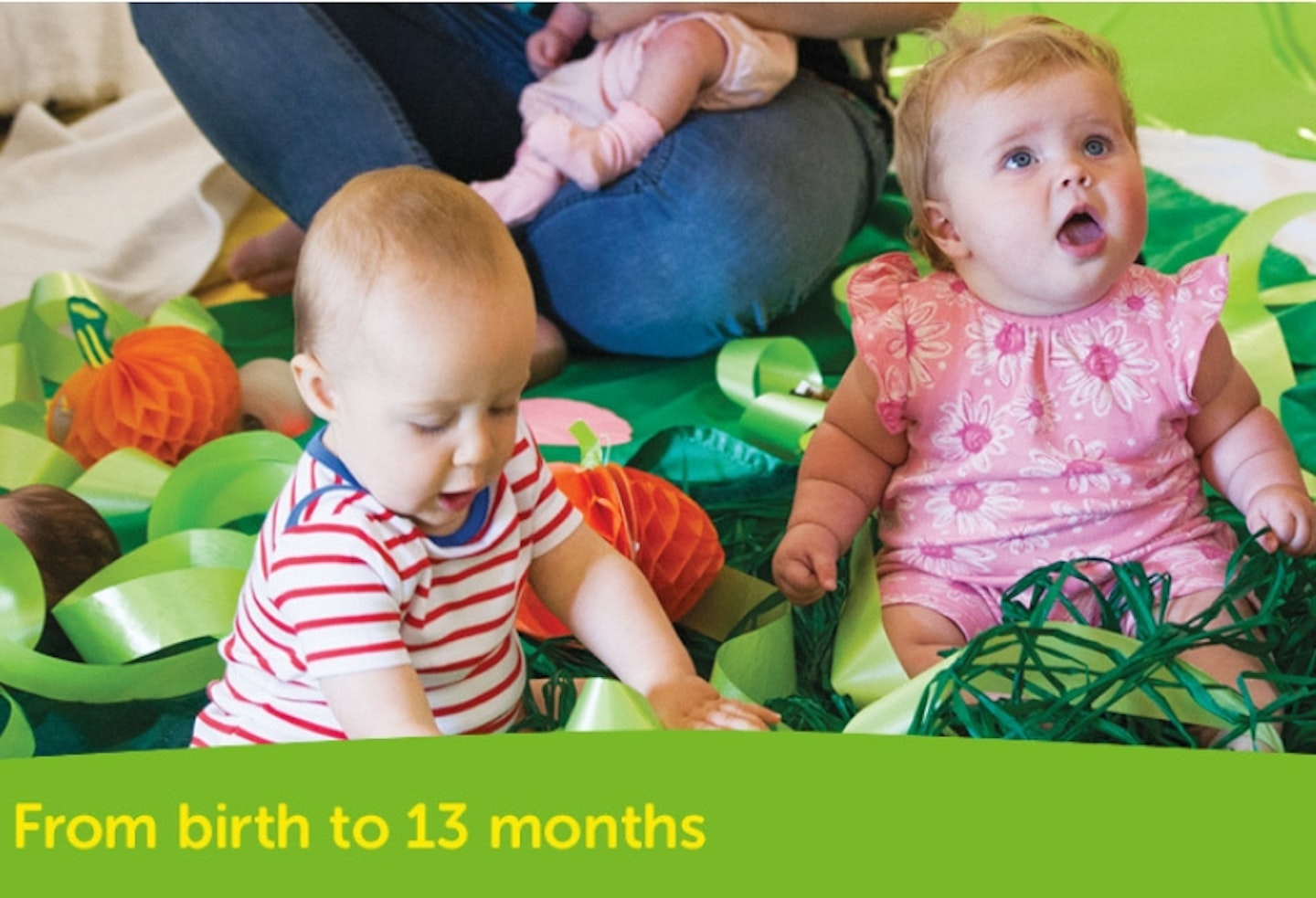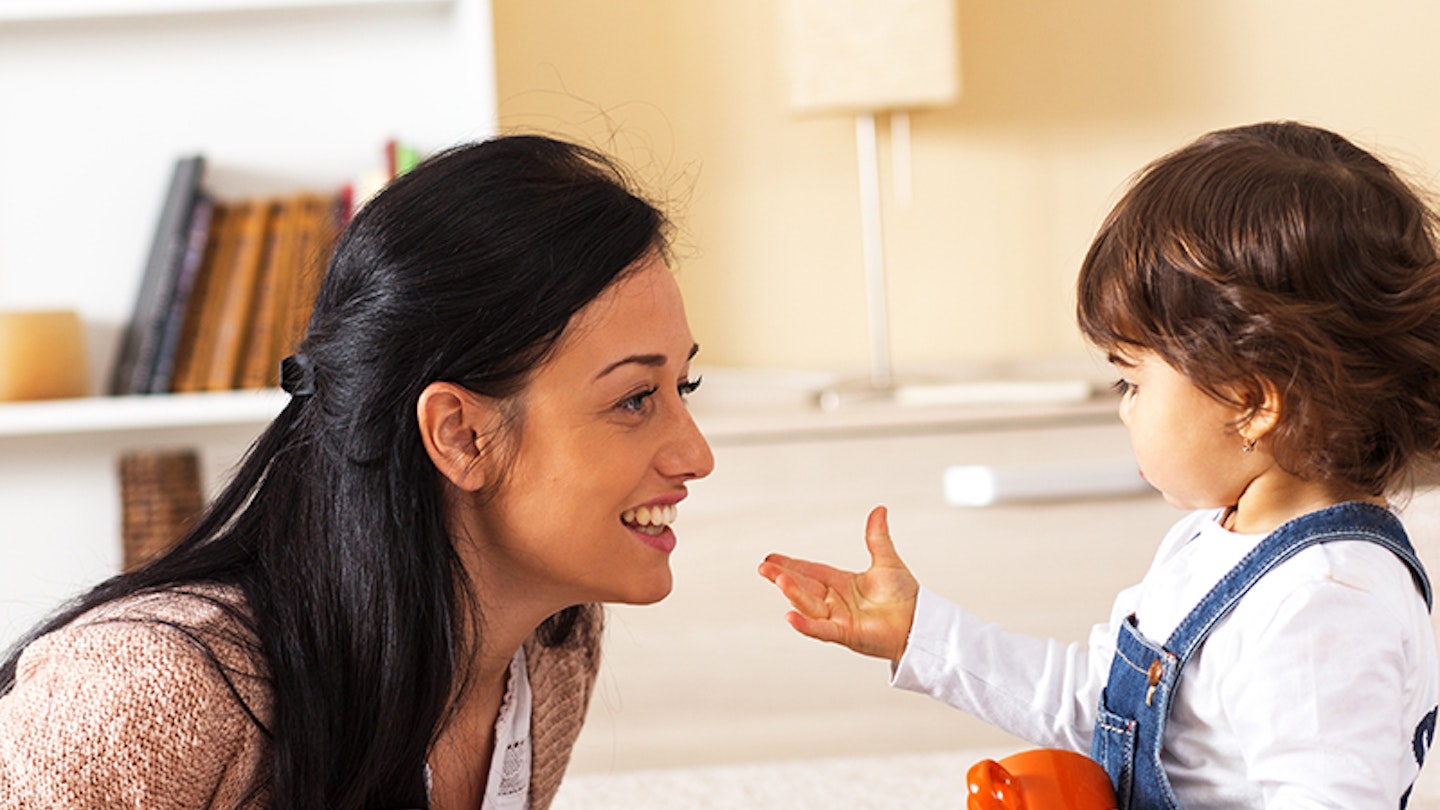Formerly referred to as sensory integration dysfunction, sensory processing disorder is a condition where the brain struggles to receive and respond to incoming information from the senses. It's not currently recognised as a distinct medical diagnosis, however, sensory processing problems are commonly seen in developmental conditions like autism spectrum disorder.
We caught up with Dr Lin Day, child development expert and Founder of Baby Sensory, who shares her expertise and tells us everything you need to know about Sensory Processing Disorder (SPD).
What is Sensory Processing Disorder?
"The way that the human brain receives, processes, coordinates, organises and responds to sensory information about the body and the environment is known as Sensory Integration", says Dr. Lin.
"As many as one in six children today, are believed to experience some form of Sensory Processing Disorder (SPD)."
Dr Lin Day
"SPD is a condition in which the brain has trouble receiving and responding to information that comes in through the senses. Even though the brain may be wired differently, most children with SPD have normal or above average intelligence."
Is it easy to tell if a baby has SPD?
"Some babies may be hypersensitive to just noise and will need ear defenders, and some will be sensitive to just sights, or to multiple sensory stimuli including light, sounds, smells, tastes, movement, touch and textures.
"A baby who is sensitive to touch, for example, may become distressed when held, bathed or dressed and may refuse to explore toys with his mouth and hands. On the flipside, some babies may show little reaction to sensory stimuli and fail to notice changes in temperature or texture."
When do syptoms of SPD in babies first appear?
"Although SPD may be present from birth, symptoms usually appear in the first year. For example, the baby may not babble or use other vocal sounds to communicate or he may cover his ears when noise levels become intolerable.
Older children may have difficulty in making eye contact, using facial expressions, body language and gestures.

"Professional assessment is vital"
Dr Lin Day
"If sensory processing is impaired in any way, there is a possibility that feeding, movement, coordination, balance, posture, speech and language development may be affected at some stage.
"Later in life, the child may find it difficult to perform countless everyday tasks, which can lead to social isolation, poor academic achievement and emotional and behavioural issues. Professional and accurate assessment of the child’s difficulties is therefore vital in order to plan treatment effectively.
How will SPD affect children?
"Sensory generally refers to the sense of touch, sight, hearing, smell and taste. Other sensory modalities include movement, coordination, balance and alignment or position of the body parts.
"If certain parts of the brain fail to receive or interpret certain signals received through the senses correctly, the baby or child may be unable to respond effectively to the demands of his body or to the world around him."
Can sensory play help babies with SPD?
"Participating in sensory play with your baby may not completely alleviate problems associated with SPD but it can develop body awareness and an understanding of the physical world.
"For example, if your baby picks up a shaker and puts it in his mouth, the action forms a spatial map in the brain and the realisation that his hand is moving the shaker, that the object makes a sound, and that it has form and texture."
What if my baby is too sensitive for sensory play?
"If your baby is hypersensitive to sensory stimuli, the environment can be adjusted to include low lighting, low noise levels and minimal activity. Solid wood toys with a non-toxic finish, rubber or organic textiles such as cotton, hemp and wool may also be used to help reduce touch sensitivity.
If your baby is sensitive to large numbers of people, consider reducing visitors at home. There are a number of techniques and activities that parents can try at home, which will help to support their baby’s brain in organising and interpreting sensory information from birth."

How to use play to support your baby
"Soft moving lights, puppets and books can be a great way to introduce sensory play in a calm and structured way. Textures such as chiffon scarves, fur fabric, silk, and natural lamb’s wool can really help to reduce sensitivity for babies when they touch and pick up objects.
"Many professionals also recommend baby massage activities to stimulate the sense of touch. It is worth speaking to a professional about this so that you can learn what works best for your baby.
"Stimulating toys and objects that can be mouthed and manipulated are also good for helping your baby to process sensory information. Different smells, talking to your baby, eye contact, reading stories softly, singing songs and lullabies, and encouraging participation with fun but simple action songs will also help your baby to process and interpret sensory information."
Is music good for babies with SPD?
"Musical experiences are particularly useful for babies with SPD. Enjoying dance, patting and clapping games as well as picking up and experimenting with instruments can be fun and easy to engage in.
"Slow rhythmic rocking or fast bouncing activities are also useful to try at home, as well as close physical contact (e.g. cuddling, rocking, dancing, massage). They will help your baby to experience sensory activities and support the bonding process between you.
"When supporting a baby with SPD, it’s important to engage in fun activities that bring about achievement or success and to give praise and encouragement consistently using face to face, quality interactions.
"Exploration of objects as mentioned previously is key as well as a regular routine that your baby will become familiar with over time."

About WOW World Group
WOW World Group provides a diverse, exciting range of parent and child activity-based class experiences across the UK and overseas. Spanning seven different programmes, its adult classes are designed to equip parents with a variety of useful skills from first aid to preparing for life with a new baby.
The fun-filled classes are designed to enhance early years learning and development while allowing parents to spend quality time with their child/children in a safe and established, nurturing environment led by qualified, knowledgeable class leaders.
WOW World Group is a founding member of the Children’s Activities Association having gained international recognition for its programmes, which include Baby Sensory, Toddler Sense, Mini Professors, Reading Fairy and Photo Sensory as well as adult classes, KeepaBeat and Baby Foundations.
Aboout the experts
Founder of Baby Sensory®, Hello Baby and Toddler Sense® Dr Lin Day (PhD, M.Phil, PGCE, FETC, BSc, Dip Ed), is one of the UK’s leading parenting experts and a renowned feature writer and speaker within the field of childcare and education.
Stephanie Spencer is the Deputy Digital Editor of Motherandbaby.com. With a digital publishing career spanning over 10 years, starting out as an editorial assistant on medical journals and moving onto become a news writer and features editor, Stephanie started at Bauer Publishing in 2019 and began working for Mother&Baby in 2020.
